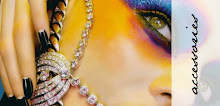.Dr. oz's Cosmetic Culprits.
"Top 3 Cosmetic Culprits
The Problem with Powder
Mineral makeup is a big trend. Made from minerals such as mica, which are used for industrial purposes as well, these tiny particles are a thousand times smaller than predecessors from even 10 years ago. Their small size makes for a smoother, more flawless look, but it has one serious unintended consequence. The particles are so tiny they fall quickly through the air and can be inhaled easily into your lungs. When construction workers use mica in products such as spackle, they wear masks to protect their lungs from scarring over time. Though there are no studies showing damage from makeup use to date, experts say the long-term use and inhalation of minerals in makeup can lead to inflammation, irritation and lung disease in women and girls.
Try This Instead
Choose liquid-based foundation with shimmer or a cream blush or bronzer to get the same effect. If you must use powder, select a pressed powder and open a window when you apply it.
The Wrinkle to Anti-Wrinkle Creams
Magic potions that purport to eliminate wrinkles actually often damage the skin to produce a wrinkle-free effect. Engineered to penetrate deep into your skin where the blood vessels are, the newer creams are actually better absorbed by your body, which means they have a greater potential to cause problems.
In order to eliminate the appearance of wrinkles, they plump up the skin by inflaming it with products that are actually irritating to the skin and break down collagen, encouraging more wrinkles down the road. The same goes for fragrances as harmless-sounding as lavender, cinnamon, eucalyptus and peppermint.
What to Look For
Fragrance-free
Color-free
Vitamin A-Retinol: a product that actually does work to improve skin tone and reduce wrinkles
Vitamin C: an effective collagen builder
Alpha hydroxy acid: a good exfoliant and collagen builder
Use these products at night, because the sun will actually oxidize the ingredients and render them ineffective.
Don't Gloss Over It
What could be more harmless than a little shine on your rosy lips? Well, as it turns out, lots of things, because the shine in lip gloss comes from petroleum jelly. Petroleum jelly is a byproduct of oil drilling, and when you spread it on your lips, you end up eating it, which is essentially the same as drinking gasoline. Add up the amount of lip gloss the average woman uses (and consumes) over a decade, and it equals 7 pounds. The European Union has banned many petroleum jelly products, and experts are concerned they could be linked to cancer. Women with breast cancer have twice the levels of hydrocarbons (substances found in petroleum jelly) in their breasts than women who haven't had breast cancer.
What to Use Instead
Steer clear of any products that list petroleum jelly or mineral oil on the ingredient list. Choose glosses that look more like lipstick and avoid any that advertise lip "plumping" capabilities, they contain products that irritate your lips to make them swell and look larger. Instead, select products with sunscreen to protect your lips from the carcinogenic effects of the sun (look for zinc oxide on the ingredient list), and glosses made from beeswax, which is completely non-toxic. If you are deeply attached to a petroleum-based gloss, save it for special occasions and use a sunscreen under it to protect your lips."
Dr. Oz
The Problem with Powder
Mineral makeup is a big trend. Made from minerals such as mica, which are used for industrial purposes as well, these tiny particles are a thousand times smaller than predecessors from even 10 years ago. Their small size makes for a smoother, more flawless look, but it has one serious unintended consequence. The particles are so tiny they fall quickly through the air and can be inhaled easily into your lungs. When construction workers use mica in products such as spackle, they wear masks to protect their lungs from scarring over time. Though there are no studies showing damage from makeup use to date, experts say the long-term use and inhalation of minerals in makeup can lead to inflammation, irritation and lung disease in women and girls.
Try This Instead
Choose liquid-based foundation with shimmer or a cream blush or bronzer to get the same effect. If you must use powder, select a pressed powder and open a window when you apply it.
The Wrinkle to Anti-Wrinkle Creams
Magic potions that purport to eliminate wrinkles actually often damage the skin to produce a wrinkle-free effect. Engineered to penetrate deep into your skin where the blood vessels are, the newer creams are actually better absorbed by your body, which means they have a greater potential to cause problems.
In order to eliminate the appearance of wrinkles, they plump up the skin by inflaming it with products that are actually irritating to the skin and break down collagen, encouraging more wrinkles down the road. The same goes for fragrances as harmless-sounding as lavender, cinnamon, eucalyptus and peppermint.
What to Look For
Fragrance-free
Color-free
Vitamin A-Retinol: a product that actually does work to improve skin tone and reduce wrinkles
Vitamin C: an effective collagen builder
Alpha hydroxy acid: a good exfoliant and collagen builder
Use these products at night, because the sun will actually oxidize the ingredients and render them ineffective.
Don't Gloss Over It
What could be more harmless than a little shine on your rosy lips? Well, as it turns out, lots of things, because the shine in lip gloss comes from petroleum jelly. Petroleum jelly is a byproduct of oil drilling, and when you spread it on your lips, you end up eating it, which is essentially the same as drinking gasoline. Add up the amount of lip gloss the average woman uses (and consumes) over a decade, and it equals 7 pounds. The European Union has banned many petroleum jelly products, and experts are concerned they could be linked to cancer. Women with breast cancer have twice the levels of hydrocarbons (substances found in petroleum jelly) in their breasts than women who haven't had breast cancer.
What to Use Instead
Steer clear of any products that list petroleum jelly or mineral oil on the ingredient list. Choose glosses that look more like lipstick and avoid any that advertise lip "plumping" capabilities, they contain products that irritate your lips to make them swell and look larger. Instead, select products with sunscreen to protect your lips from the carcinogenic effects of the sun (look for zinc oxide on the ingredient list), and glosses made from beeswax, which is completely non-toxic. If you are deeply attached to a petroleum-based gloss, save it for special occasions and use a sunscreen under it to protect your lips."
Dr. Oz












0 comments:
Post a Comment